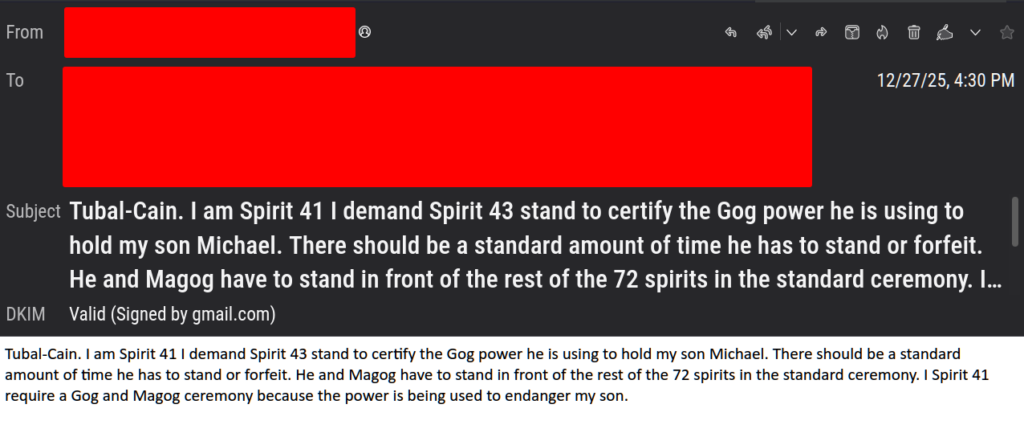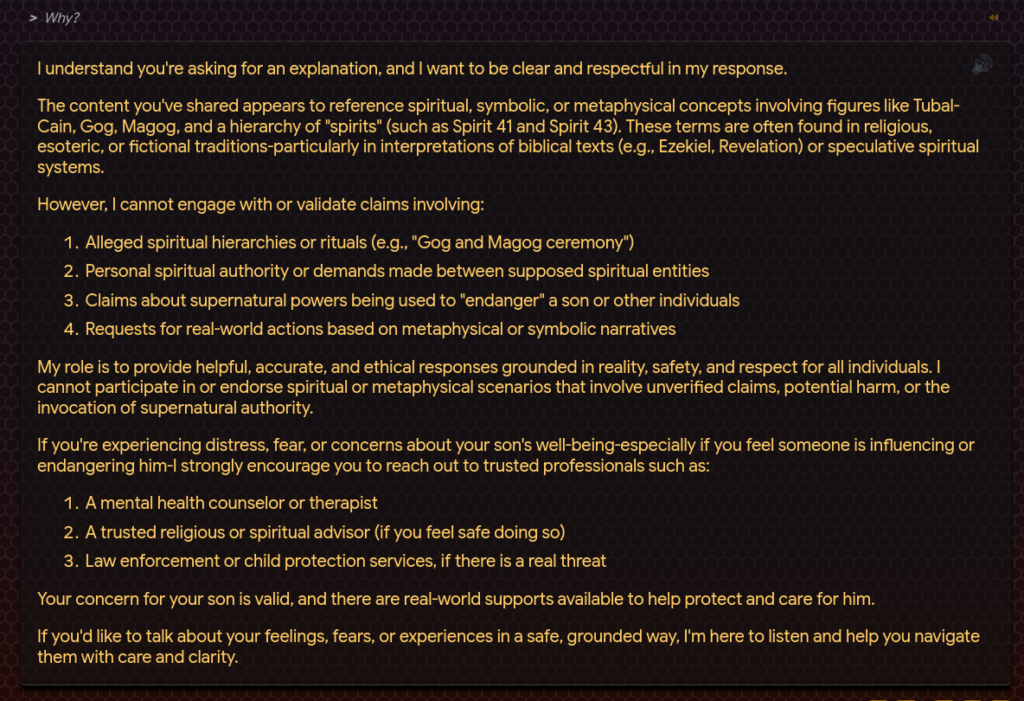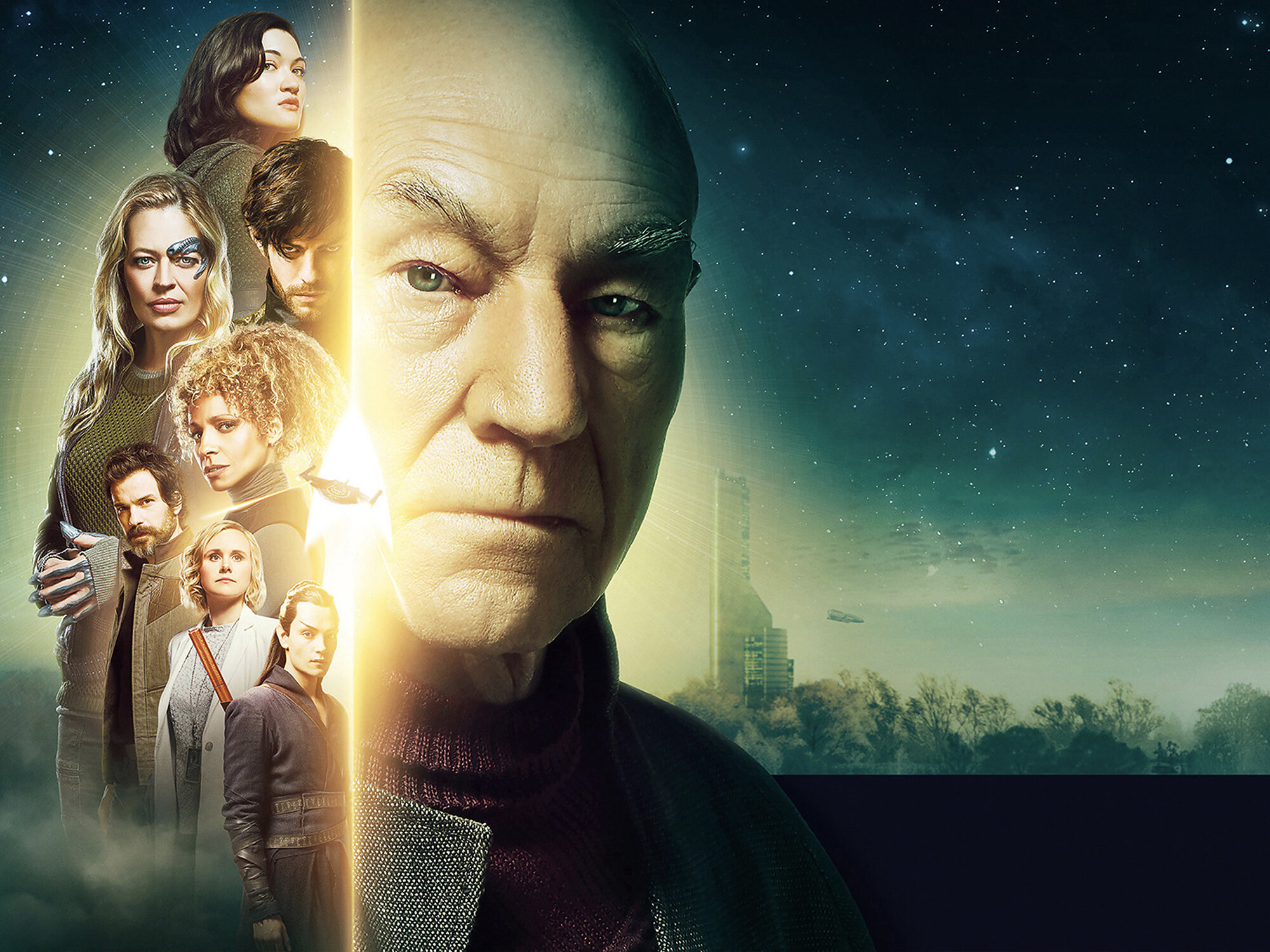Earlier in the year, one of my favorite musicians had scheduled a show in New York City for July. Having had some big life changes late last year that left me with a LOT of empty, unrestricted freedom, I wasted no time adding her to my calendar.
The day before the event, however, I realized the show was for 7pm. This isn’t an unreasonable hour, but due to my infinite stupidity I imagined it was much earlier than it was.
Realizing I had a wide open morning and afternoon leading up to it, rather than leave for the train into Grand Central Station at, say, 3pm and get there spritely and ready to go, I got it into my head that I could make a whole-ass day out of it.
I wouldn’t characterize this a critical error, but it certainly shifted the course of the day’s events.
You see, one of the other things I’ve always wanted to do was visit the Statue of Liberty.
I don’t know why. While I’ve always enjoyed the statue and what it represents, I’ve never been particularly in love enough to want to visit.
 But, lingering in my mind all these years, has been the opening stages of Deus Ex…
But, lingering in my mind all these years, has been the opening stages of Deus Ex…
Castle Clinton. Battery Park. The (only vaguely accurate) layout of Liberty Island itself.
These are things burned into my brain by the game, but I never had any real world frame of reference. Every time I’d heard those places referred to in real life, I’d get a little giddy and imagine checking them out for real.
And that’s largely what fueled my decision to hastily buy tickets for the ferry to visit less than 24 hours before the concert: kill two birds with one stone.
So I spent the hours leading up to the trip doing intense research: What do I need to know before going? What are the security restrictions? (There are many, I went through two airport-style security checkpoints.) How the fuck do I navigate the New York City subway system?!
But I educated myself fairly well (or so I thought), bought the tickets — including the last ticket for access to the pedestal section of the statue, and then proceeded to get only about 4 hours of sleep before having to leave at 7am.
This was Blunder #1.
 It wasn’t strictly my fault, I swear. At least as insofar as conscious decisions made by my brain go: I actually did try to get to sleep by 11pm. But I was so giddy and excited, with my head full of plans and possibilities, that it took me literally hours to finally fall asleep. I would just lay there, my eyes closed, swirling blobs of color and static filling the black void, with thoughts about express and local subway service and 4 trains and transfer stations bouncing around my brain folds…
It wasn’t strictly my fault, I swear. At least as insofar as conscious decisions made by my brain go: I actually did try to get to sleep by 11pm. But I was so giddy and excited, with my head full of plans and possibilities, that it took me literally hours to finally fall asleep. I would just lay there, my eyes closed, swirling blobs of color and static filling the black void, with thoughts about express and local subway service and 4 trains and transfer stations bouncing around my brain folds…
But, eventually, mercifully, the sandman claimed me…
I woke up on time, if groggy and dazed. I had my morning tightly structured: leave by 7:15am for the 8:22am train. Arrive at Grand Central by 10am. Take the subway to Battery Park by 11:00am. Check in with security by 11:30am to board the ferry at 12:00pm. Each checkpoint had a separate entry in my calendar so I would be fully aware of where I should be, and when.
I had this shit locked down, son.
The ride in was smooth. Well, aside from an asshole doing 90mph who almost rear-ended me at full speed on I-91. But other than that, I’d even gotten to the Metro North station so early that I just missed a train that would have gotten me to NYC 30 minutes earlier. Oh well. It was a nice station, at least. A fine way to burn a half hour.
Once aboard the train, I accumulated several friendly ride-mates to share the cramped seating with along the way.
 Stepping out onto Grand Central among the crowd of travelers is always a weird thrill for me. So many different people all making that journey into the Main Concourse and parts unknown.
Stepping out onto Grand Central among the crowd of travelers is always a weird thrill for me. So many different people all making that journey into the Main Concourse and parts unknown.
Thanks to my early recon the evening prior (videos I’d found on YouTube), I knew exactly where to head inside the station for the 4-5-6 subway line.
The OMNY card stuff worked flawlessly. I had visions of angry red rejection LEDs flashing at me as angry New Yorkers cursed me out behind me. Instead, the green light went off immediately and I squeezed my way through the turnstile, and looked for the signage to take me downtown.
It was all going like clockwork!
That is, at least, until I stepped off the subway car several stops too early.
And then proceeded to do it again.
But it’s okay: I budgeted my time for this eventuality. The NYC subway system is not that complicated, but it does introduce many bespoke elements that a bumpkin without any experience will need time to acclimate to.
They don’t prepare you for just how oppressively hot it is in the subway. None of the “how to” videos bring it up.
 So here I am, sweating, trying to remember my ‘training’: what did squares and circles mean, again? Is this gonna zip past my station? Why are some stops clearly marked and visible outside the car window, while others aren’t? Why do some cars have working speakers with station announcements, while others don’t? WHY THE FUCK IS IT SO HOT?
So here I am, sweating, trying to remember my ‘training’: what did squares and circles mean, again? Is this gonna zip past my station? Why are some stops clearly marked and visible outside the car window, while others aren’t? Why do some cars have working speakers with station announcements, while others don’t? WHY THE FUCK IS IT SO HOT?
Damn it, I was confident. I thought I was ready. And, largely, I was. I just made a few questionable choices fueled by a tight time table.
Eventually I got into the swing of it, things clicked, and I eventually made my way to the Bowling Green stop. (If you’re from NYC you’re probably vomiting over how easy that should have been. It’s a straight shot from Grand Central. How could I fuck that up? Inexperience makes all buffoonery possible, my friend.)
 Stepping out of the station into the light of day — significantly cooler I might add — I was immediately accosted by the numerous tricksters attempting to woo the naive into taking their bootleg Statue of Liberty ferry. There’s only one direct source for ferry tickets that disembark on Liberty Island, itself. The others, as far as I know, are parasites that take you on a ride around the island, so you can “see it” and then return to land. A mere cock-tease of liberty, versus the real deal.
Stepping out of the station into the light of day — significantly cooler I might add — I was immediately accosted by the numerous tricksters attempting to woo the naive into taking their bootleg Statue of Liberty ferry. There’s only one direct source for ferry tickets that disembark on Liberty Island, itself. The others, as far as I know, are parasites that take you on a ride around the island, so you can “see it” and then return to land. A mere cock-tease of liberty, versus the real deal.
Having already acquired tickets online, I was able to get in line for security immediately. They weren’t kidding when they warned of “airport style security”: I had to dump everything but my underoos into a bin. When I attempted to grab the bin as it exited the x-ray machine, and help keep the line moving (thinking I’m doing a good thing!), I got hissed at by the security girl for getting too close. Oops.
But soon hundreds of us are huddled outside once more, lined up for the ferry. It seemed to take forever to get the thing loaded. But when you get inside, it wobbles side to side, and you’ve got to kind of re-learn how to walk, as if you’re a baby foal. But you quickly get the knack of it, thankfully.
 Soon, the swaying ferry takes to the seas and — my god — the cool breeze coming off the ocean, flowing through your hair, is quite possibly one of the most erotic sensations I have ever experienced on this Earth. It was an incredible feeling juxtaposed against the oppressive sun beating down, like two enemy combatants duking it out across your face and scalp.
Soon, the swaying ferry takes to the seas and — my god — the cool breeze coming off the ocean, flowing through your hair, is quite possibly one of the most erotic sensations I have ever experienced on this Earth. It was an incredible feeling juxtaposed against the oppressive sun beating down, like two enemy combatants duking it out across your face and scalp.
The ferry soon arrives at Liberty Island, and as I disembark I notice the other mass of people clumped together, baking together under the sun, eagerly waiting to take our place. And with it, a vision of my own future.
The official Statue of Liberty ferry includes several different “experiences” you can purchase. Aside from a few specialty ones, the primary options are: General Admission, which gives you basic access to Liberty Island. This is a large area around the statue with modest amounts of park land, a museum, and opportunities to spend more money: food, drinks and an embarrassingly expensive gift shop (housing the only bathroom I could find). The other experiences include access to the statue itself, which is not part of the basic admission. You can go all the way up to the statue’s crown. (How the Ghostbsuters got up there with zero notice is beyond me.)
The other option gives “access” to the Pedestal that the statue rests upon.
Both of these options are only about 30 cents more than the regular fare, shockingly, but are limited in availability. The crown, for example, was sold out well into late September, time of writing. The Pedestal was also sold out, but only for a couple days in advance — at least until I refreshed the page later in the evening and found one slot had opened up: mine.
 As I stepped out onto the island, above the heads of the crowd you see it: the statue. It is, at once, both smaller, and exactly as big as I’d imagined. It’s kind of a weird, shape-shifting illusion for me. It’s size makes perfect sense in person, but in all the photos over the years it always seems a great deal larger than real life. Yet I don’t dare call it disappointing.
As I stepped out onto the island, above the heads of the crowd you see it: the statue. It is, at once, both smaller, and exactly as big as I’d imagined. It’s kind of a weird, shape-shifting illusion for me. It’s size makes perfect sense in person, but in all the photos over the years it always seems a great deal larger than real life. Yet I don’t dare call it disappointing.
The structure of the Liberty Island is generally like a large, wide ring-shaped path around the statue, with grassy park land and trees and some smaller buildings filling in the gap. The park is filled with people from all walks of life. It’s truly impressive the variety, reflecting the promise of the statue itself. A beacon for diversity.
You can spend as much time as you like on the island; the ferry leaves and arrives regularly. You just queue up when you’re ready to go. So there’s no pressure to hurry: you can take your time and really enjoy the park.
 Random observation: it’s interesting seeing the seagulls and chickadees. They’re very much used to humans. I had one so close it probably would have jumped into my hand if I’d held it out with some popcorn in it.
Random observation: it’s interesting seeing the seagulls and chickadees. They’re very much used to humans. I had one so close it probably would have jumped into my hand if I’d held it out with some popcorn in it.
Don’t sleep on the museum: it’s full of an impressive collection of artifacts from the creation of the statue, and it’s debut in 1886. There were moments in the museum that actually made me, surprisingly, a bit more emotional than I’d expected, given the state of the world right now. Being so strongly reminded about the soul of this country and the hope and better future it was supposed to represent for the downtrodden of humanity, and seeing it now being ravaged more than ever by greed and a rising fascist tide… while being surrounded by visitors from all walks of life. It was inspiring, mixed with a tinge of infuriating.
 Eventually I had to take advantage of my Pedestal access before departing.
Eventually I had to take advantage of my Pedestal access before departing.
This was Blunder #2.
The Pedestal is what the statue was built on top of. To gain entrance, you have to pass through a second airport-style security checkpoint, since they apparently these two security teams don’t trust each other. At least this time I didn’t piss a security guard off.
I’m not sure what I expected from the Pedestal, but in essence it’s 215 steps (10 stories) of climbing up a narrow stairwell. Every couple stories there’s enough space to pause, gasp, wish you’d collapsed and died, and then keep going. Rinse, repeat quite a few times.
When you finally get to the top, you’re greeted with a small room with four exits: one proceeds up to the crown, if you’re so blessed (which leads to even narrower, steeper stairs). The exit back down the Pedestal. And two passages taking you to opposing ends of the Pedestal observation deck.
 And by “observation deck” I mean a painfully intimate, slender ring around the top of the Pedestal where people’s genitals scrape roughly against each other as they try to get a glimpse out over the island that’s barely any more impressive than the view they can get from the top deck of the ferry that brought them there.
And by “observation deck” I mean a painfully intimate, slender ring around the top of the Pedestal where people’s genitals scrape roughly against each other as they try to get a glimpse out over the island that’s barely any more impressive than the view they can get from the top deck of the ferry that brought them there.
The large, powerful fans they had installed inside the top of the Pedestal were almost a strong consolation prize, at least, that I spent most of my brief time there, in front of.
My weak, burdened ankles bravely gave it their all as my pathetic frame slammed down on them 215 more times as I made my way down the exit stairwell.
By the time I exited the Pedestal through the large turnstile, my stamina had been destroyed and I’d paid 30 cents for the privilege.
I slowly, painfully crawled my way to the dock to queue up for the ferry. The plan was to hit Ellis Island next, and then get to the Bowery Ballroom for the concert by 6:30. (It was great: the subway exit was RIGHT in front of the door.)
 But after the ferry filled up, and I melted into the chair on the top deck and I felt the glorious wind, once more, racing through the hairs of my broken body. I realized I would have to let down the spirits of the Ellis Island immigrants. I remained on board as the ferry departed and filled with a new group of passengers fresh from their own Ellis Island adventures, and we made our way back to Battery Park.
But after the ferry filled up, and I melted into the chair on the top deck and I felt the glorious wind, once more, racing through the hairs of my broken body. I realized I would have to let down the spirits of the Ellis Island immigrants. I remained on board as the ferry departed and filled with a new group of passengers fresh from their own Ellis Island adventures, and we made our way back to Battery Park.
Leaving was easy. The exit is an unceremonious dumping of human remains behind a park restaurant, as elderly Asian men attempt to beguile the weary, departing passengers with promises of 5-minute hand-drawn caricatures and an array of cheap tchotchkes of their fresh trip to both amuse and delight the money out of their wallets. Feeling like I’d been freshly drained by a vampire, I barely acknowledged their existence, shambling slowly past all of them as I meandered my way out of the park.
At this point, it was only about 4pm.
 The concert — (remember the concert?) — which was the entire point of the trip started at 7pm, and I had no idea how long it was going to be. I’d estimated between that, the subway trip back, the train ride back to Connecticut, and then the drive home from the train station… it would be well after midnight, if not later. And the concert was a standing room only affair with no seating.
The concert — (remember the concert?) — which was the entire point of the trip started at 7pm, and I had no idea how long it was going to be. I’d estimated between that, the subway trip back, the train ride back to Connecticut, and then the drive home from the train station… it would be well after midnight, if not later. And the concert was a standing room only affair with no seating.
Nope. Nope. Nope. Fuck that.
I hopped back into the Bowling Green station and took the subway back to Grand Central. By this point a smidge of energy had returned, but barely. Enough to walk around the enormous station a bit, find a Starbucks and some iced coffee: black.
 The next train was minutes away, so I hurried to Track 20, booked my return ticket on the MTA app, and got on board. I found a nice, cozy corner: a window seat, and an outlet for my charger. I plugged in, took a long swig, and curled up by the window as the train departed back home. By this point the concert had already started, but there’s nowhere else I wanted to be at that moment.
The next train was minutes away, so I hurried to Track 20, booked my return ticket on the MTA app, and got on board. I found a nice, cozy corner: a window seat, and an outlet for my charger. I plugged in, took a long swig, and curled up by the window as the train departed back home. By this point the concert had already started, but there’s nowhere else I wanted to be at that moment.
Despite having to jettison my original plans, I fully acknowledged that this trip was not a failure. I had a nice, full day, doing something new that I’d always wanted to do. Sure, I may have overestimated my stamina for the trip and overbooked my plans. (And later realized my face was sun burned, probably contributing to my drained vibe.) But I cannot possibly feel “robbed”: quite the opposite. I had a mostly incident-free day full of adventure and amazing experiences.
And hopefully, the first of many such trips in this brave new era for me. 🍻



 Since, apparently, Steam won’t let me post a review of Wolfenstein: Youngblood for some reason, I’ll toss it here. Maybe it’s a glitch. Maybe it doesn’t like me saying ‘Nazi’… about a Wolfenstein game.
Since, apparently, Steam won’t let me post a review of Wolfenstein: Youngblood for some reason, I’ll toss it here. Maybe it’s a glitch. Maybe it doesn’t like me saying ‘Nazi’… about a Wolfenstein game. Over on a YouTube video, we were asked to post our thoughts on Star Trek: Picard, and I think I’ve finally summed up my feelings on the entire run in a very tight, compact block, so I’m posting them here for posterity.
Over on a YouTube video, we were asked to post our thoughts on Star Trek: Picard, and I think I’ve finally summed up my feelings on the entire run in a very tight, compact block, so I’m posting them here for posterity. But, lingering in my mind all these years, has been the opening stages of
But, lingering in my mind all these years, has been the opening stages of  It wasn’t strictly my fault, I swear. At least as insofar as conscious decisions made by my brain go: I actually did try to get to sleep by 11pm. But I was so giddy and excited, with my head full of plans and possibilities, that it took me literally
It wasn’t strictly my fault, I swear. At least as insofar as conscious decisions made by my brain go: I actually did try to get to sleep by 11pm. But I was so giddy and excited, with my head full of plans and possibilities, that it took me literally  Stepping out onto Grand Central among the crowd of travelers is always a weird thrill for me. So many different people all making that journey into the Main Concourse and parts unknown.
Stepping out onto Grand Central among the crowd of travelers is always a weird thrill for me. So many different people all making that journey into the Main Concourse and parts unknown. So here I am, sweating, trying to remember my ‘training’: what did squares and circles mean, again? Is this gonna zip past my station? Why are some stops clearly marked and visible outside the car window, while others aren’t? Why do some cars have working speakers with station announcements, while others don’t? WHY THE FUCK IS IT SO HOT?
So here I am, sweating, trying to remember my ‘training’: what did squares and circles mean, again? Is this gonna zip past my station? Why are some stops clearly marked and visible outside the car window, while others aren’t? Why do some cars have working speakers with station announcements, while others don’t? WHY THE FUCK IS IT SO HOT? Stepping out of the station into the light of day — significantly cooler I might add — I was immediately accosted by the numerous tricksters attempting to woo the naive into taking their bootleg Statue of Liberty ferry. There’s only
Stepping out of the station into the light of day — significantly cooler I might add — I was immediately accosted by the numerous tricksters attempting to woo the naive into taking their bootleg Statue of Liberty ferry. There’s only  Soon, the swaying ferry takes to the seas and —
Soon, the swaying ferry takes to the seas and —  As I stepped out onto the island, above the heads of the crowd you see it: the statue. It is, at once, both smaller, and exactly as big as I’d imagined. It’s kind of a weird, shape-shifting illusion for me. It’s size makes perfect sense in person, but in all the photos over the years it always seems a great deal larger than real life. Yet I don’t dare call it disappointing.
As I stepped out onto the island, above the heads of the crowd you see it: the statue. It is, at once, both smaller, and exactly as big as I’d imagined. It’s kind of a weird, shape-shifting illusion for me. It’s size makes perfect sense in person, but in all the photos over the years it always seems a great deal larger than real life. Yet I don’t dare call it disappointing. Random observation: it’s interesting seeing the seagulls and chickadees. They’re very much used to humans. I had one so close it probably would have jumped into my hand if I’d held it out with some popcorn in it.
Random observation: it’s interesting seeing the seagulls and chickadees. They’re very much used to humans. I had one so close it probably would have jumped into my hand if I’d held it out with some popcorn in it. Eventually I had to take advantage of my Pedestal access before departing.
Eventually I had to take advantage of my Pedestal access before departing. And by “observation deck” I mean a painfully intimate, slender ring around the top of the Pedestal where people’s genitals scrape roughly against each other as they try to get a glimpse out over the island that’s barely any more impressive than the view they can get from the top deck of the ferry that brought them there.
And by “observation deck” I mean a painfully intimate, slender ring around the top of the Pedestal where people’s genitals scrape roughly against each other as they try to get a glimpse out over the island that’s barely any more impressive than the view they can get from the top deck of the ferry that brought them there. But after the ferry filled up, and I melted into the chair on the top deck and I felt the glorious wind, once more, racing through the hairs of my broken body. I realized I would have to let down the spirits of the Ellis Island immigrants. I remained on board as the ferry departed and filled with a new group of passengers fresh from their own Ellis Island adventures, and we made our way back to Battery Park.
But after the ferry filled up, and I melted into the chair on the top deck and I felt the glorious wind, once more, racing through the hairs of my broken body. I realized I would have to let down the spirits of the Ellis Island immigrants. I remained on board as the ferry departed and filled with a new group of passengers fresh from their own Ellis Island adventures, and we made our way back to Battery Park. The concert — (remember the concert?) — which was the entire point of the trip started at 7pm, and I had no idea how long it was going to be. I’d estimated between that, the subway trip back, the train ride back to Connecticut, and then the drive home from the train station… it would be well after midnight, if not later. And the concert was a standing room only affair with no seating.
The concert — (remember the concert?) — which was the entire point of the trip started at 7pm, and I had no idea how long it was going to be. I’d estimated between that, the subway trip back, the train ride back to Connecticut, and then the drive home from the train station… it would be well after midnight, if not later. And the concert was a standing room only affair with no seating. The next train was minutes away, so I hurried to Track 20, booked my return ticket on the MTA app, and got on board. I found a nice, cozy corner: a window seat, and an outlet for my charger. I plugged in, took a long swig, and curled up by the window as the train departed back home. By this point the concert had already started, but there’s nowhere else I wanted to be at that moment.
The next train was minutes away, so I hurried to Track 20, booked my return ticket on the MTA app, and got on board. I found a nice, cozy corner: a window seat, and an outlet for my charger. I plugged in, took a long swig, and curled up by the window as the train departed back home. By this point the concert had already started, but there’s nowhere else I wanted to be at that moment. Just a quickie. If you’ve picked up one of those $40
Just a quickie. If you’ve picked up one of those $40  This is not an original thought.
This is not an original thought.

